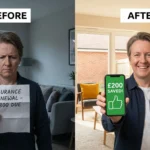Electric vehicle fires up in UK
As the UK embraces its green future, a growing challenge is emerging in tandem with progress: electric vehicle fires up in UK have become a rising concern, particularly as lithium-ion battery risks intensify. As electric vehicles (EVs) gain more attention and are bought in higher numbers, QBE is warning others about being safe and managing risks. Because innovation and danger often mix, many in Britain are calling for solutions that improve the environment without endangering the public.
Electric Vehicle Fires Up in UK Amid Soaring EV Sales

The phrase “electric vehicle fires up in UK” isn’t just a metaphor for booming sales—it reflects a very real issue of increasing incidents involving EV battery fires. Last year, government support and a campaign for cleaner vehicles made EVs a key part of new vehicle sales. With more EV on the roads, the likelihood of fires with lithium-ion batteries is increasing.
According to QBE, a leading worldwide insurer with a strong UK base, claims for fire damage from electric cars have risen sharply in the last 18 months. Because more fires have been reported, it’s clear that there must be better plans for fire safety and more education about electric cars for the public. Now, the UK needs to be ready for rising EV numbers and all the risks that bringing more of these vehicles on the road creates.
The Challenges of Using Lithium-Ion Batteries in Electric Cars
The basic challenge is tied to the lithium-ion battery, a technically advanced part that can be dangerous. Many appreciate their high energy content and small size, but the types of chemicals used in these batteries increase the risk of thermal runaway which could start a fire or even cause explosions.
When an electric vehicle fires up in UK, it is often due to overcharging, manufacturing defects, physical damage, or exposure to extreme temperatures. The results of these cyber brute force attacks are often very serious. Lithium-ion battery fires have intense flames, aren’t controlled easily and could reignite after some time has passed. As a result, they are much more hazardous than regular engine fires to both the public and to those who come to fight them.
QBE Issues Preliminary Warnings Over Insurance Claims for Electronic Vehicle Fires

QBE has described how these fires affect finances and safety. While fires in fuel vehicles don’t usually result in serious damage, an EV fire may destroy the vehicle and cause harm to a lot of nearby structures. The cost of fixing or losing an electric vehicle, plus the special way batteries need to be cleaned after a fire, increases the total amount of an insurance claim.
Keeping track of these trends, QBE has alerted both car owners and those in charge of fleets. Their message is clear: as the electric vehicle fires up in UK, stakeholders must act fast to reduce battery-related risks. Among these duties are setting safety standards with manufacturers, preventing EV battery fires and checking that charging stations are compliant.
The risk of fires is raised by infrastructure and charging problems.
The lacking EV charging infrastructure is often forgotten when we think about this issue. More electric cars on the streets mean a big rise in the need for charging stations. Chargers are made in many different qualities. A malfunction in the electrics might spark a fire if installation is poor, cables are broken or there has not been regular maintenance.
Evidence shows, according to QBE, that overheating incidents with EV batteries in households are often due to home installations or old wiring. As electric vehicle fires up in UK households and businesses alike, proper inspection and certification of charging systems are more important than ever.
Making People Aware of the Possible Fires in Electric Vehicles
Even with a rise in electric car fires, many people still do not know much about these fires. Many EV owners don’t understand the particular problems lithium-ion batteries can create. Because petrol car fires are usually simpler to extinguish, EV fires often need people who are trained and equipped for the job.
QBE wants to see nationwide plans for teaching both EV owners and emergency workers about electric cars. Early signs you may notice are a swollen battery and more heat than usual and you should be aware of what to do if there’s a fire. Across the UK, fire crews are being instructed on how to handle EVs after a fire, mostly by pouring water on the battery pack and closely monitoring the vehicle in case it reignites.
The two major sectors must share information and strategies.
A complete solution to the problem depends on cooperation among manufacturers, insurers, regulators and emergency services. As electric vehicle fires up in UK, government bodies must implement clear regulations around battery quality, vehicle certification, and charging station safety. Manufacturers ought to invest most in solid-state batteries because they are safer than lithium-ion ones.
QBE urges regulators to toughen the testing and qualification process for EV batteries. They’ve also called for making regular risk assessments a rule for big EV fleets, for example those operated by delivery and transport firms. Our aim is to set up an EV system that is safe from fire, supports the country’s zero emissions goals and sustains development.
EVs in the UK will soon be safer, smarter and more sustainable.
Even with these risks, electric vehicles are set to enjoy continued success in the UK. Fast progress is being made, as upgraded EV models now have improved battery handling and methods to prevent fires. However, it is important that everyone’s awareness and training also keep up. QBE’s effort to bring attention to these risks proves why responsible progress is necessary in the electric mobility area.
As electric vehicle fires up in UK headlines become more frequent, public and private entities must take proactive steps to ensure that safety keeps pace with adoption. Insurers such as QBE, are responding to issues, but they also work to influence the future of electric vehicle safety by sharing insights and ideas.
Concluding Remarks: Managing the Limits of Growth
The UK is experiencing an electric vehicle revolution that is making our air cleaner and reducing emissions. However, the recent trend where electric vehicle fires up in UK communities serves as a sobering reminder that every technological advancement comes with new responsibilities. By taking extra care with lithium-ion risks and having a safe culture, the UK can encourage green transportation safely.
Because QBE and others are bringing attention to electric car battery dangers, the UK is prepared to both switch to more electric cars and improve its road safety.








